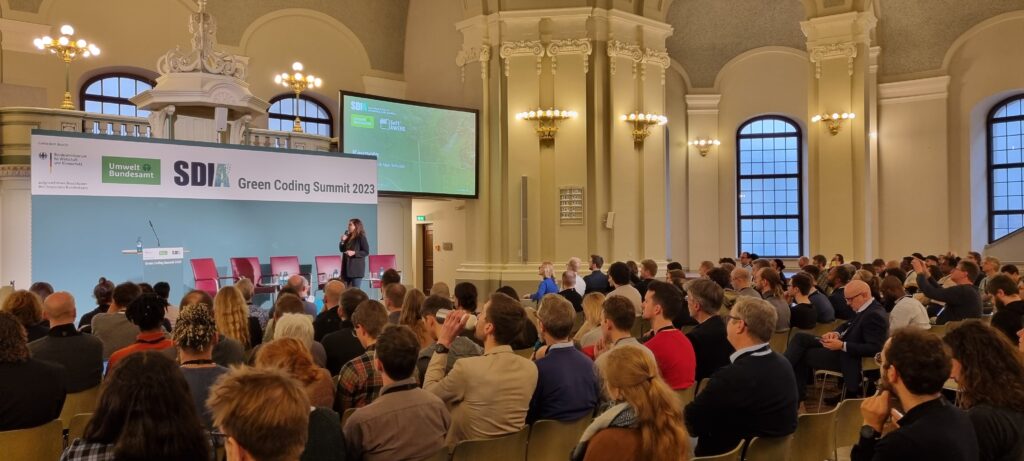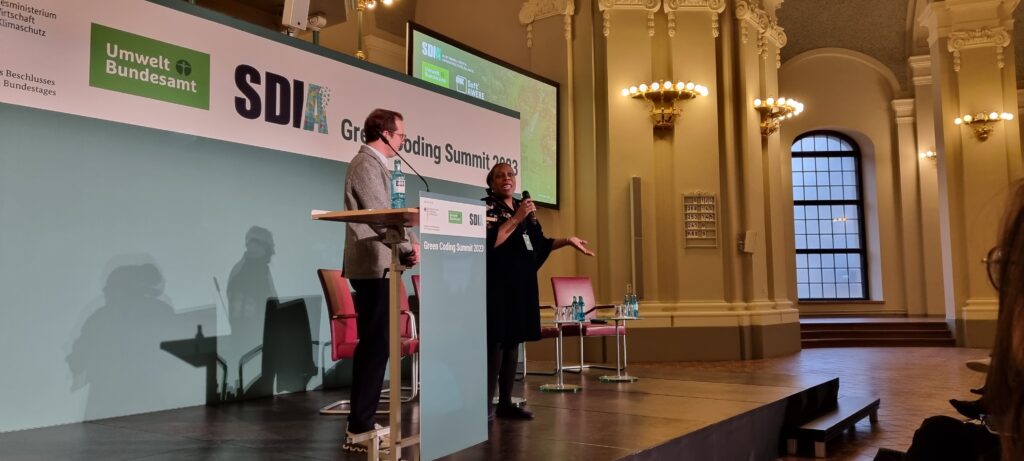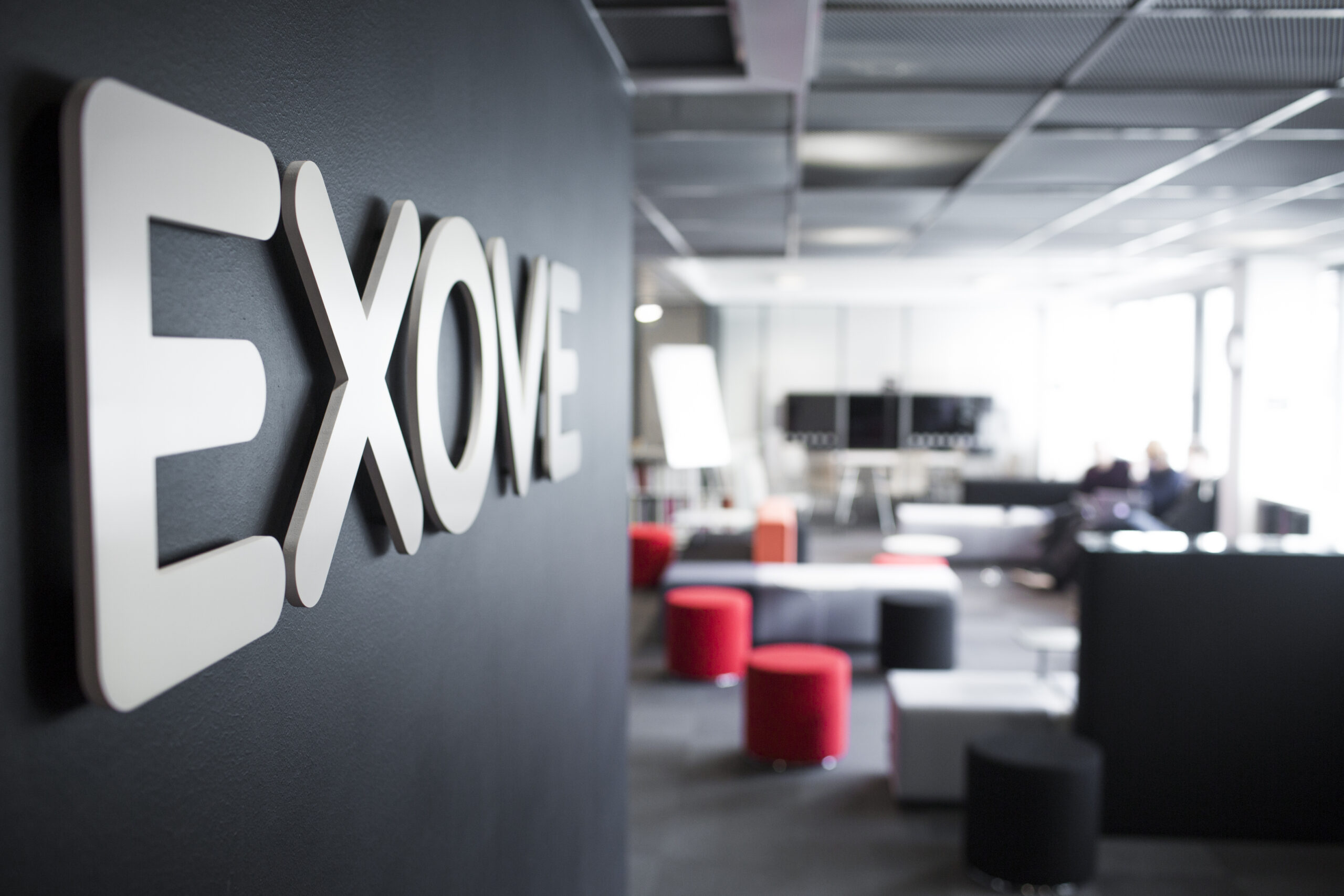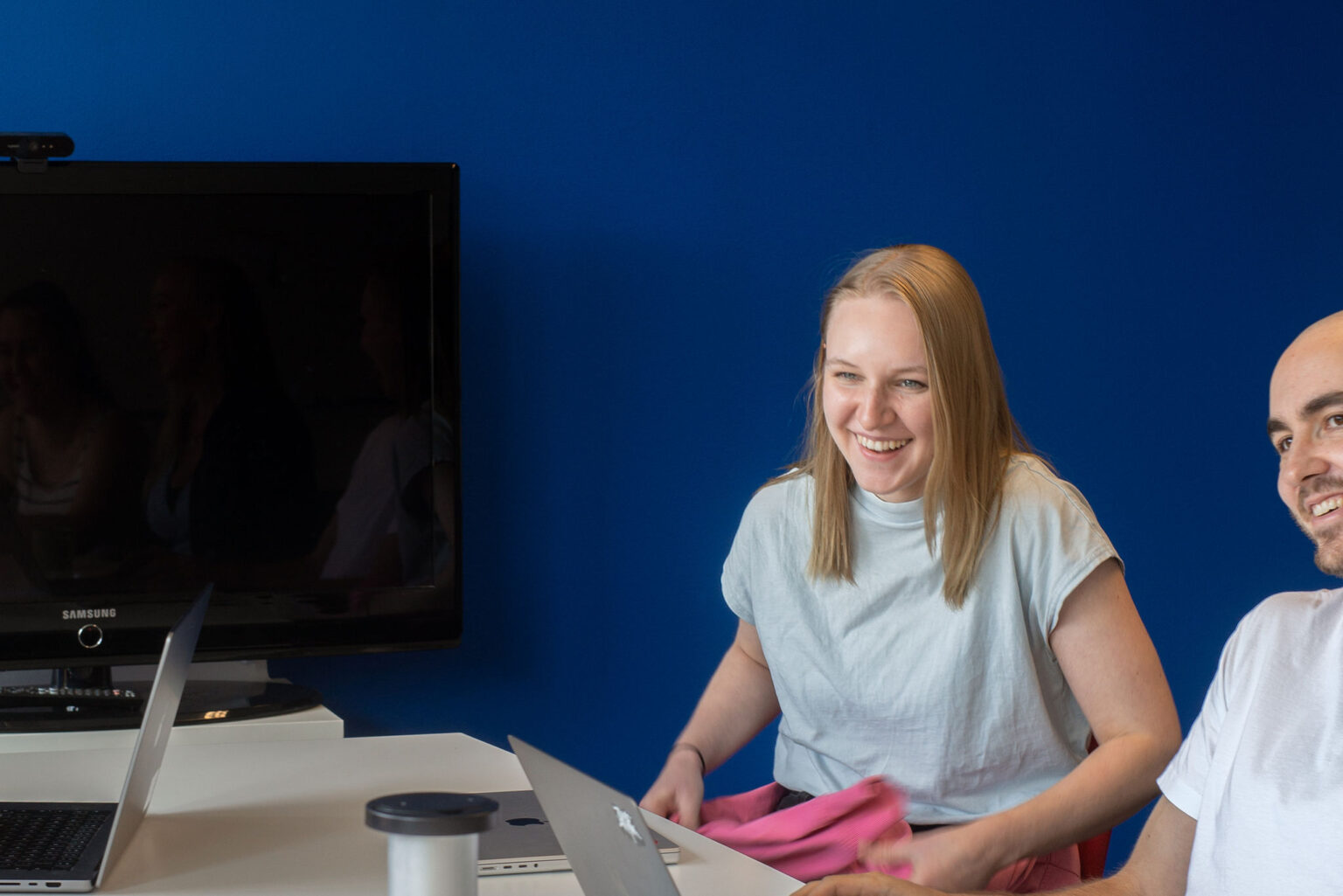Thoughts from SDIA Green Coding Summit
I had the pleasure of attending to SDIA Green Coding Summit in Berlin as a panelist on “Keynote Debate: The way forward for Green Coding in Europe” together with Anita Schüttler (neuland), Max Körbächer (Liquid Reply) and Atanas Atanasov (Intel).
The event collected more than hundred people to learn and discuss the state of green coding in Europe and selecting the best ways forward. The event was opened by a video message from Dr. Franziska Brantner from the German Federal Ministry for Economics and Climate Action. It was thrilling to learn that green coding is seen as an important topic within German government. If any of Finnish government officials are reading this, please take similar action!
Our panel was right after the welcome words by Max Schulze and Maria Morse (Sustainable Digital Infrastructure Alliance (SDIA)) followed by a chat with Anna Zagorski (Umweltbundesamt – German Environment Agency) about the key topics of the conference and green coding in general. We discussed about the barriers of adoption and how to take them down.
The discussion was lively and we agreed on number of matters, such as need of awareness, need of tools, high cognitive load on developers, and disagreed on some, such as role of technology in solving the crisis or web3. I was delighted that the was excellent questions from the audience and a lot of pondering on the topic and its wider consequences to climate change, economy, and software development.

The morning continued with panels about launching Green Coding Wiki and lessons from the SoftAWERE Project, and then with practical implementation of green coding in ABN Amro (represented by Wiebren van der Zee), Airbus (Laurie Servais), and Lufthansa Industrial Solutions (Kevin Haase). The major challenges pinpointed in the panel are related to the paradigm shift needed and everything being quite new for most of people. Also KPIs are hard to create for green software. Every team needs to have someone who has an intrisic motivation for green coding to spread it into the rest of the team to make them self-motivated about the subject.
After the lunch, the conference was split into two tracks – one focusing on tools of green coding and another on infrastructure, international initiatives, and academia. I jumped from track to track, as both had only excellent topics and the choices were hard. These are my picks from the sessions:
-
Responsible Tech Playbook for UN (in session by Cameron Casher) – interesting approach towards environmental impact, inclusivity, and transparency of technology to guide UN teams to identify proper strategies to pinpoint and assess problems related to technology.
-
Sustainable IT Strategies by ISIT (presented by Jules Delcon and Simon Uyttendaele) is an ambitious approach to help developers, architects and other stakeholders to think about sustainability while designing and developing software. The handbook does not provide rules or stipulations, but asks questions to check whether a sustainable practice has been considered and maybe taken into use.
-
Firefox Power profiler session (by Florian Queze) was an interesting hands-on approach to software energy optimisation. The cases showed that seemingly quite innocent and trivial matters, such as animating web page background color, might cause both CPU and GPU run on a full throttle.

All in all, the event both affirmed that I am on a right path and provided more information and valuable directions to move forward. It was also good to see Shola Oyedeji, PhD representing LUT University and Finland in the academic panel and Ville Nordberg from Trail Openers Oy participating in the event.
And the final highlight was a fellow conference attendee – after hearing my in the panel – saying that my voice sounds good and would fit very well to radio. I was so flattered. And by the way… I am looking for podcasts interested in talking about green coding – with my radio quality voice 😉



